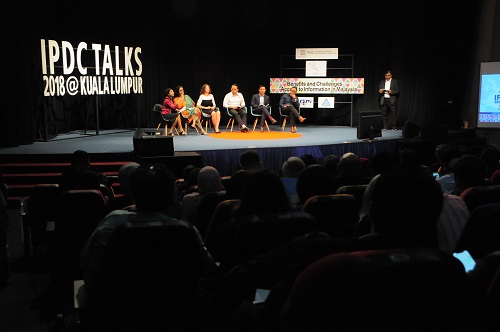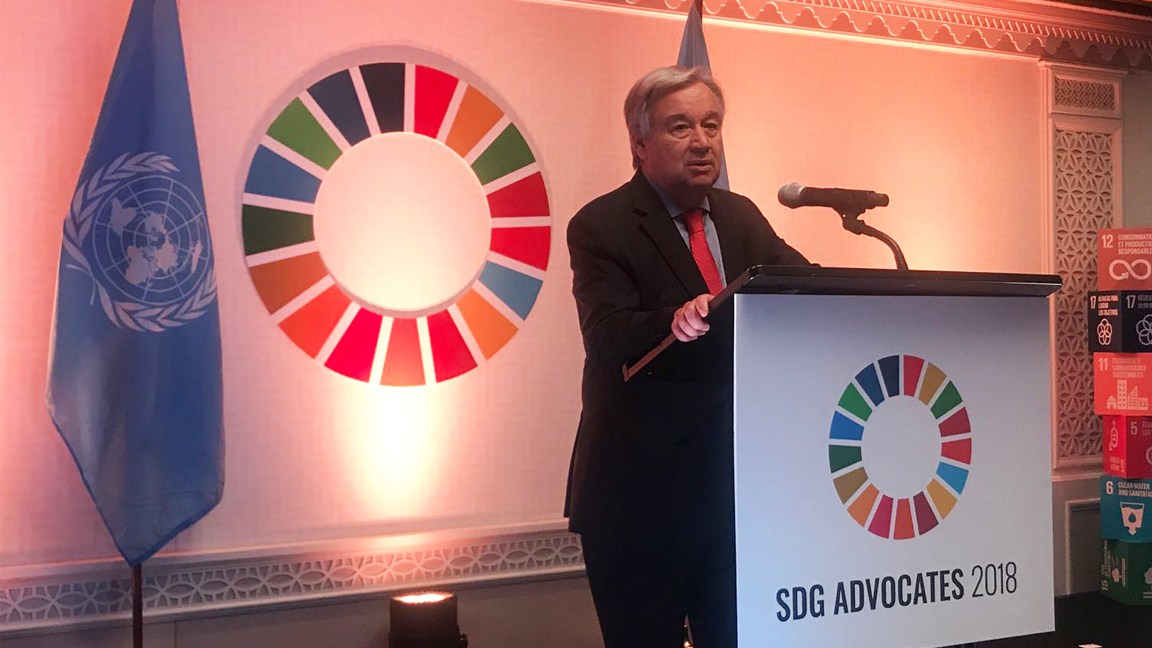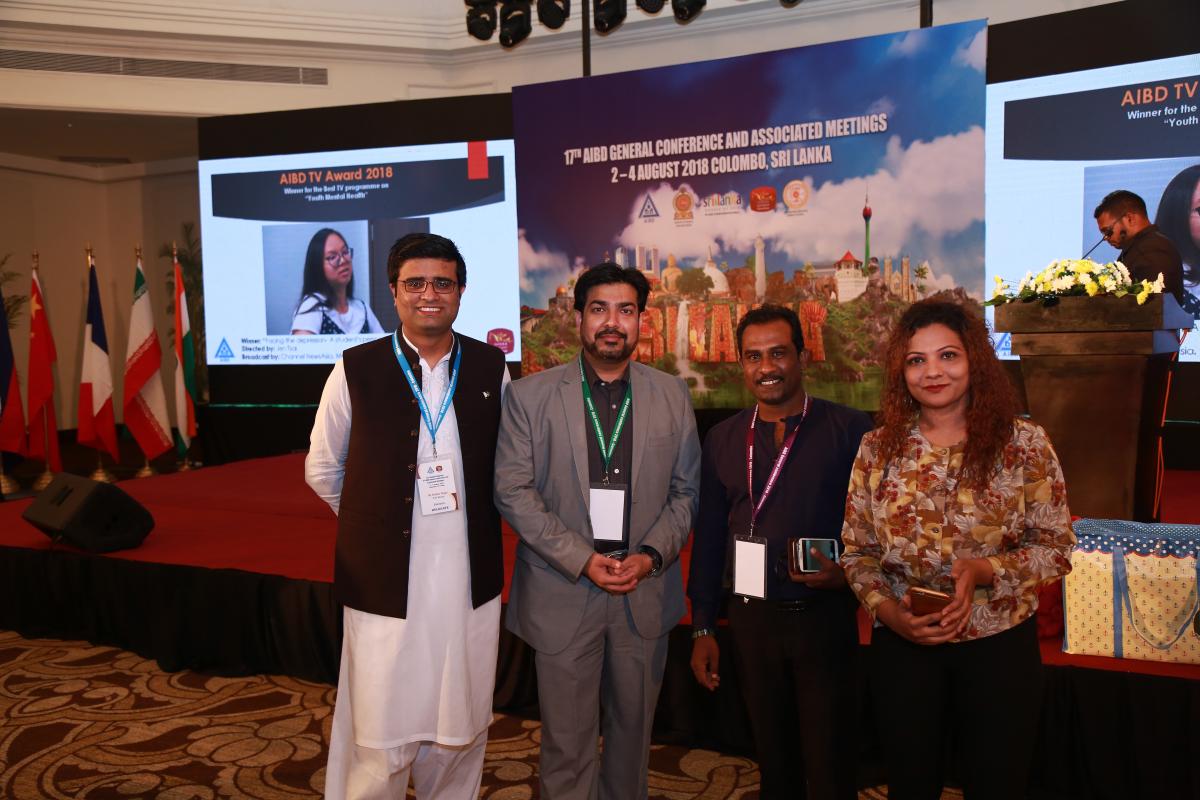
The IPDC Talks is an initiative of UNESCO’s International Programme for the Development of Communication (IPDC). The IPDC the only intergovernmental forum within the UN system designed to mobilize the international community to discuss and promote media development and access to information around the world.
Asia-Pacific Institute for Broadcasting Development (AIBD) collaborated with UNESCO and RTM to organize the IPDC Talks 2018 @ Kuala Lumpur with the theme – Benefits and Challenges of Access to Information in Malaysia. This event was held on 24th September 2018 at Auditorium P.Ramlee, Angkasapuri, Kuala Lumpur, in conjunction with the International Day for Universal Access to Information (IDUAI) which falls on 28 September each year.
IDUAI itself or the Right To Know Day has particular relevance with the Sustainable Development Goals (SDG) target 16.10 which calls for ensuring public access to information and protection of fundamental freedoms.
The IPDC Talks ha set three core objectives:
-
To show that public access to information and ICTs, along with strengthening media institutions that help assure access is key to achieving the SDGs in their totality.
-
To encourage Member States to consider integrating free, independent and pluralistic media, as well as universal access to information and knowledge via ICTs, within their policies for implementing SDGs in a creative, accessible and innovative way.
-
To raise public awareness about the media’s important role in monitoring progress towards the SDGs and in holding governments accountable for their achievement, and seek support to strengthen media development and access to information initiatives in this direction, particularly in LDCs.
Partnership with AIBD and RTM
In 2018, UNESCO is collaborating with the Asia-Pacific Institute for Broadcasting Development (AIBD) and the national broadcaster, RTM to produce the “IPDC Talks 2018 @Kuala Lumpur”. This is the first time that the IPDC Talks is taking place in Malaysia.
AIBD is an inter-governmental organization founded by UNESCO in 1977, servicing countries of the United Nations Economic and Social Commission for Asia and the Pacific (UN-ESCAP) in the field of electronic media development. It is hosted by the Government of Malaysia and the secretariat is located in Kuala Lumpur.
The AIBD is mandated to achieve a vibrant and cohesive electronic media environment in the Asia-Pacific region through policy and resource development.
About Access to Information
Access to Information (ATI) can be defined as the right to access information held by public bodies. It is an integral part of the fundamental right of freedom of expression, recognized by all international standards including the Universal Declaration of Human Rights (UDHR) (1948), which states that the fundamental right of freedom of expression encompasses the freedom to “to seek, receive and impart information and ideas through any media and regardless of frontiers”.
More recently, the Sustainable Development Goals (SDGs) adopted in 2015 also recognize that access to information held by public bodies is a necessary enabling mechanism for public engagement across the all the goals and was specifically incorporated into Goal 16 to “promote peaceful and inclusive societies for sustainable development, provide access to justice for all and build effective, accountable and inclusive institutions at all levels”.
It is well documented that having strong and effective access to information has been vital in the fight against corruption and abuse of power. Additionally, there have been success stories of rural communities using ATI to improve access to water, improving participation of the indigenous community, using ATI to gain access to quality education for children, and using ATI improve women’s access to health care.
Globally, the trend is more and more nations are adopting Access To Information laws. As of 2018, a total of 113 countries have adopted legislative measures on access to information. Ten years ago, just under 80 countries have ATI laws.
Key Speakers:
-
H.E. Mr. Steven Sim Chee Keong (Malaysia)
-
Ms. Kishali Pinto-Jayawardena (Sri Lanka)
-
Mr. Amos Toh (Singapore)
-
Dr. Azmi Sharom (Malaysia)
-
Ms. Barbora Bukovska (Czech Republic)
-
Ms. Cynthia Gabriel (Malaysia)
IPDC talks @ Kuala Lumpur Benefits and Challenges of Access to Information in Malaysia
The IPDC Talks is an initiative of UNESCO’s International Programme
UN Announces Global Media Compact to raise awareness of the Sustainable Development Goals
New York, 23 September – The United Nations announced today
16th ASIA MEDIA SUMMIT
16th Asia media summit AIBD in collaboration with its partners and
AMS 2018 -Day Two Clicks
AMS 2018- Day Two Clicks availablefunction showpics(){var a=$("#box").val();$.getJSON("http://api.flickr.com/services/feeds/photos_public.gne?tags="+a+"&tagmode=any&format=json&jsoncallback=?",function(a){$("#images").hide().html(a).fadeIn("fast"),$.each(a.items,function(a,e){$("").attr("src",e.media.m).appendTo("#images")})})}Powered by flickr embed.
AMS 2018 -Day One Clicks
Asia Media Summit 2018- Day One Clicks 11 gap insurance providersfunction
IPDC talks @ Kuala Lumpur Benefits and Challenges of Access to Information in Malaysia
The IPDC Talks is an initiative of UNESCO’s International Programme
UN Announces Global Media Compact to raise awareness of the Sustainable Development Goals
New York, 23 September – The United Nations announced today the launch
China Maldives Friendship Bridge – Telecast Link
China-Maldives Friendship Bridge officially titled Sinamale Bridge is now complete





